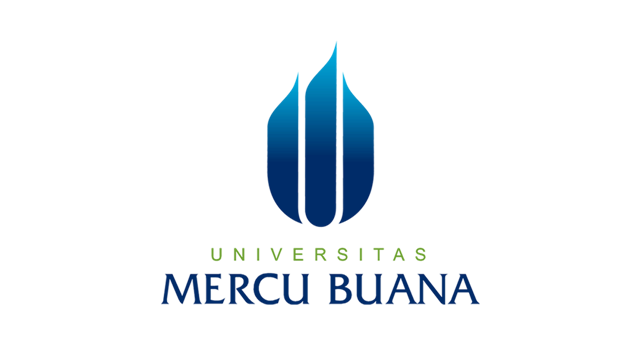GREEN TECHNOLOGY FOR SUSTAINABLE AGRICULTURE: BIO-FERTILIZER PRODUCTION FROM MUNICIPAL WASTE TO PRESERVE THE ENVIRONMENT
Abstract
This study addresses the pressing issue of municipal waste (MW) management by proposing an innovative approach to transform residential solid waste into a valuable resource using green technology. MW, sourced from diverse sectors, undergoes various disposal methods, including incineration, recycling, and landfilling. In Malaysia, the composition of MW aligns with global trends, with food waste and plastic being the predominant categories. This research focuses on producing fertilizer from residential solid waste through a green technology process, utilizing a sequential procedure involving high pressure, high temperature, and energized water to de-polymerize hemicellulose and lignin, followed by microbial enzymatic fermentation. The developed green technology introduces a novel apparatus designed for treating MW in a high-temperature, low-pressure rotating vessel using indirect heating with thermal fluid. The experimental protocol involves four batches of MW samples, evaluating the mass differential before and after the treatment process. Furthermore, a 7-week observation period assesses chili plant growth as an indicator of fertilizer effectiveness. Results indicate a significant 71% mass reduction of MW, amounting to 201.26 kg, emphasizing the efficacy of the developed process. The investigation extends to plant height, comparing MW-derived fertilizer with commercial fertilizer over a 5-week period. Remarkably, chili plants fertilized with MW-derived fertilizer exhibit a greater height of 8.6 cm, surpassing the 7.3 cm observed with commercial fertilizer. This study concludes that MW-derived fertilizer is highly recommended for enhancing plant growth and health in Malaysia, suggesting a sustainable production system. The research not only contributes to waste management but also aligns with broader goals of promoting environmentally conscious and sustainable agricultural practices, emphasizing the potential of green technology in addressing the challenges of municipal waste.
Keywords
Full Text:
PDFReferences
Sreenivasan, J., Govindan, M., Chinnasami, M., & Kadiresu, I. (2012). Solid waste management in Malaysia–A move towards sustainability. Waste Manag. An Integr. Visions, 2005(April 2005), 55-70.
Ramli, N. N., Shamsudin, M. N., Mohamed, Z., & Radam, A. (2012). The impact of fertilizer subsidy on Malaysia paddy/rice industry using a system dynamics approach. International Journal of Social Science and Humanity, 2(3), 213.
Elton, T., Rosenani, A. B., Fauziah, C. I., & Kadir, J. (2014). Comparison of sago pith waste vermicompost characteristics to vermicomposts of different feed stockin Malaysia. Malaysian Journal of Soil Science, 18, 103-114.
Rahim, K. A. (2012). Opportunities and prospects of biofertilizer and bioorganic fertilizer in Malaysia. In EU-Asia Biomass Best Practices and Business Partnering Conference. EU-Malaysia Biomass Sustainable Production Initiative (Biomass SP).
Agamuthu, P., & Fauziah, S. H. (2007, September). Sustainable management of wet market waste. In Proceedings of the International Conference on Sustainable Solid Waste Management (pp. 5-7). Chennai: Centre for Environmental Studies, Anna University.
Johari, A., Ahmed, S. I., Hashim, H., Alkali, H., & Ramli, M. (2012). Economic and environmental benefits of landfill gas from municipal solid waste in Malaysia. Renewable and Sustainable Energy Reviews, 16(5), 2907-2912.
Tarmudi, Z., Abdullah, M. L., & Tap, A. O. M. (2012). A review of municipal solid waste management in Malaysia. Jurnal Teknologi, 57(1), 41-56.
Guanzon, Y. B., & Holmer, R. J. (1993). Composting of organic wastes: A main component for successful integrated solid waste management in Philippine cities. In National Eco-Waste Multisectoral Conference and Techno Fair at Pryce Plaza Hotel, Cagayan de Oro City, Philippines (pp. 16-18).
Kala, D. R., Rosenani, A. B., Fauziah, C. I., Ahmad, S. H., Radziah, O., & Rosazlin, A. (2011). Commercial organic fertilizers and their labeling in Malaysia. Malaysian Journal of Soil Science, 15(1), 147-157.
Leman, A. M., Zakaria, S., Salleh, M. N. M., Sunar, N. M., Feriyanto, D., & Nazri, A. A. (2017, September). The effect of activation agent on surface morphology, density and porosity of palm shell and coconut shell activated carbon. In AIP Conference Proceedings (Vol. 1885, No. 1). AIP Publishing.
Feriyanto, D., Zakaria, S., Alva, S., Pranoto, H., Sudarma, A. F., & Wong, A. P. J. (2020). Closed-horizontal rotating burner development for optimizing palm shell charcoal (PSC) production. International Journal of Advanced Technology in Mechanical, Mechatronics and Materials, 1(2), 39-44.
Noviyanto, A., Nishimura, T., Kitano, M., & Ohashi, N. (2016). Pulverization of oxide powders utilizing thermal treatment in ammonia-based atmosphere. Journal of the European Ceramic Society, 36(16), 4083-4088.
Michael, K. G., Sogbesan, O. A., Onyia, L. U., & Shallangwa, S. M. (2019). Nutritional evaluation of processed Jatropha curcas seed meals. Direct Research Journal of Agriculture Food Science, 7(6), 131-136.
Hu, Y., Zhu, G., Zhang, J., Huang, J., Yu, X., Shang, Q., ... & Zhou, Y. (2021). Rubber seed oil-based UV-curable polyurethane acrylate resins for digital light processing (DLP) 3D printing. Molecules, 26(18), 5455.
Feriyanto, D., Pranoto, H., Leman, A. M., Sudarma, A. F., & Romahadi, D. (2022). NiO electro-deposition technique of
DOI: http://dx.doi.org/10.22441/ijimeam.v5i3.23743
Refbacks
- There are currently no refbacks.
Copyright (c) 2024 Muhamad Afifi Muhamad Sidik, Abdul Mutalib Leman, Dafit Feriyanto, Samir Sani Abdulmalik, Supaat Zakaria

This work is licensed under a Creative Commons Attribution-ShareAlike 4.0 International License.
INDEXED IN
International Journal of Innovation in Mechanical Engineering and Advanced Materials (IJIMEAM)
Published by:

Universitas Mercu Buana
Program Studi S2 Teknik Mesin
Jl. Meruya Selatan No. 1, Kembangan, Jakarta 11650, Indonesia
Phone/Fax. (+6221) 5871335
Email [email protected]
Homepage mercubuana.ac.id/magister-teknik-mesin

This work is licensed under a Creative Commons Attribution-ShareAlike 4.0 International License.




















